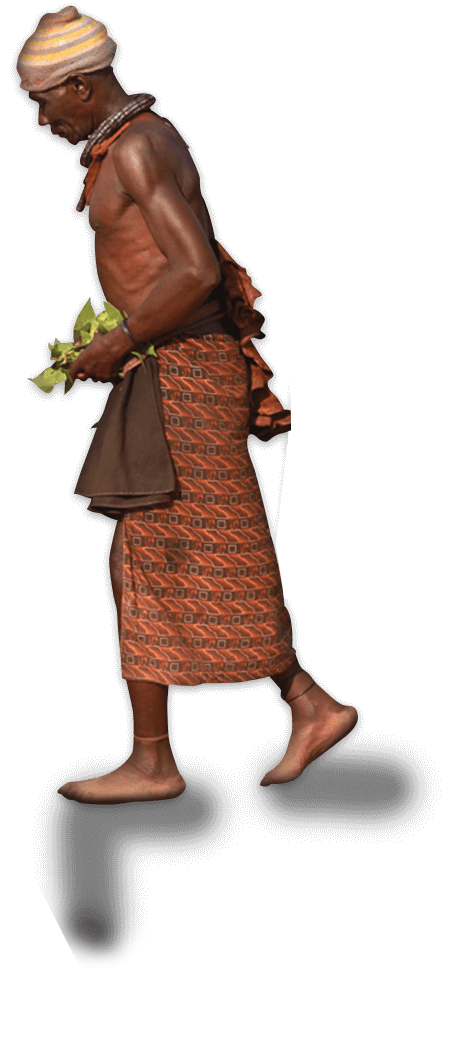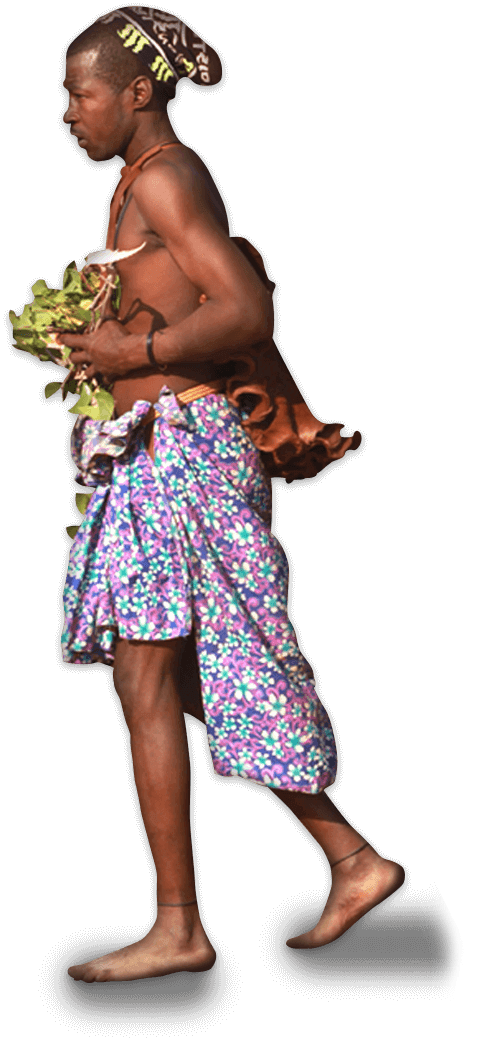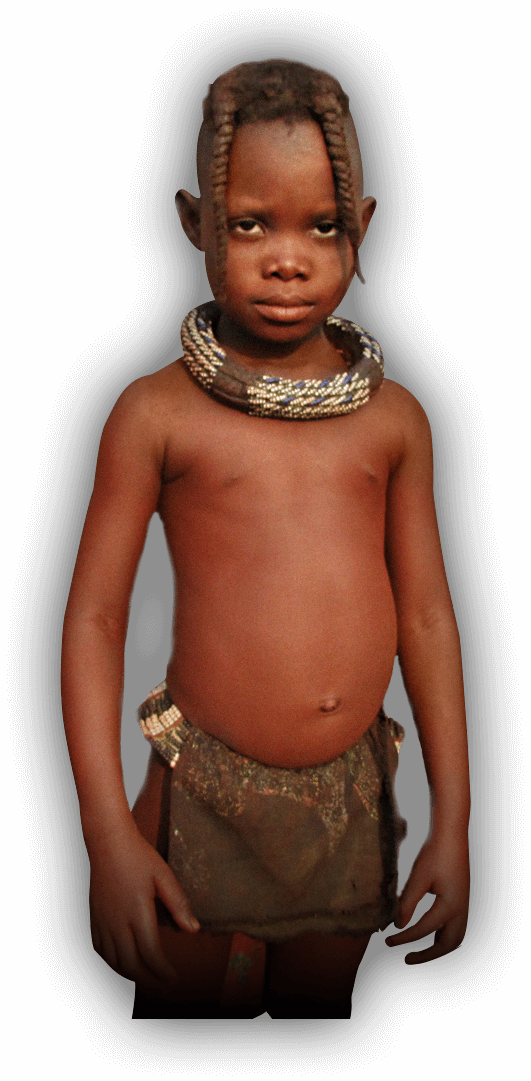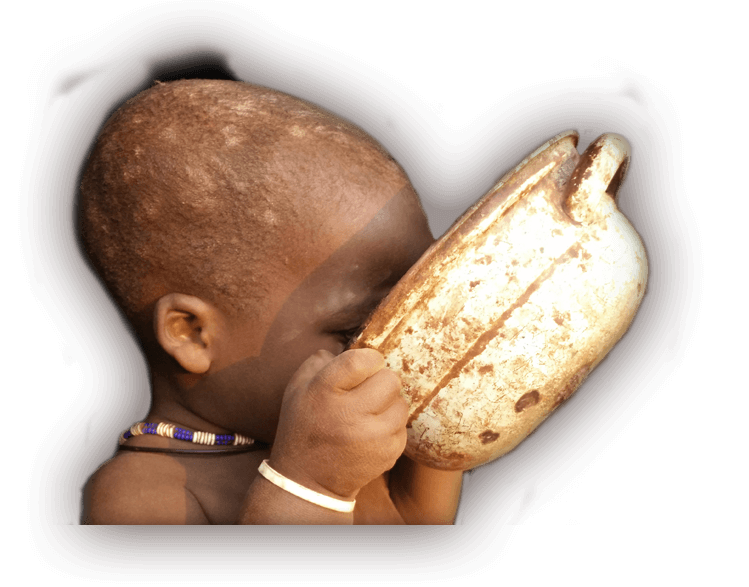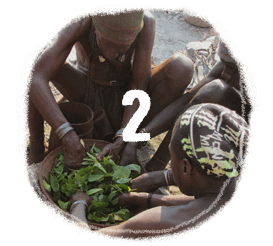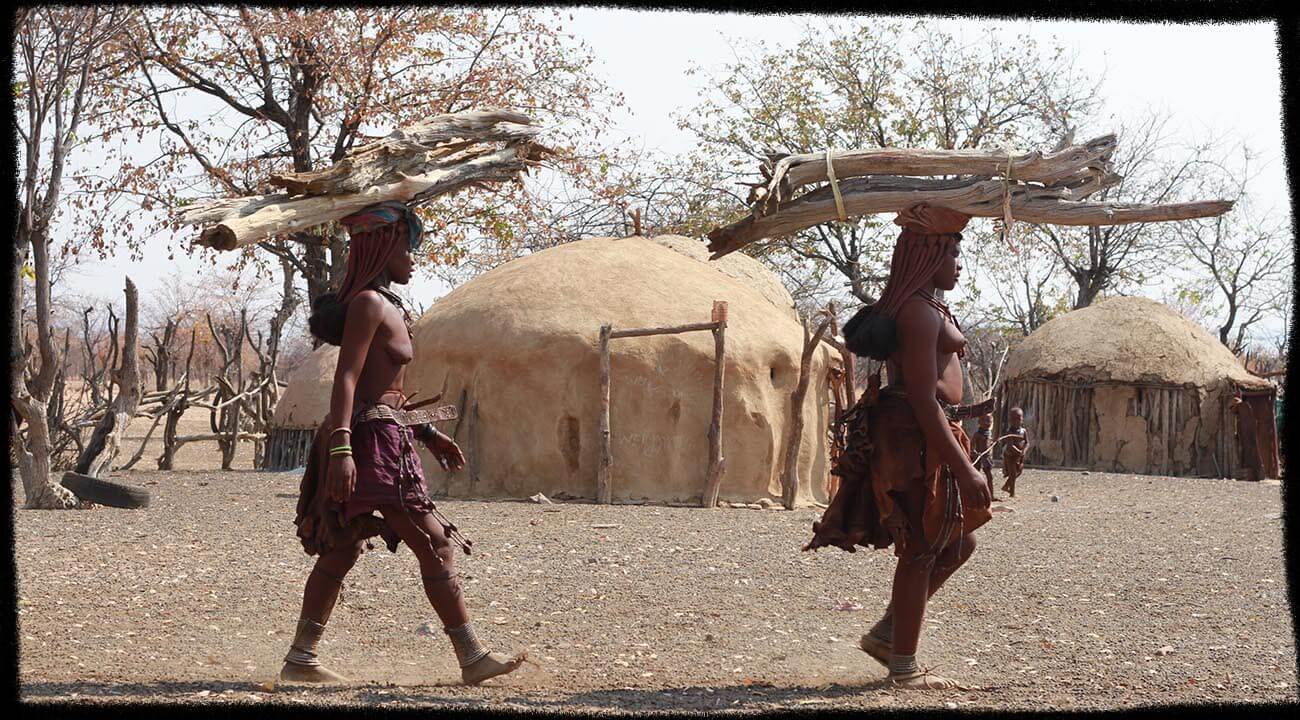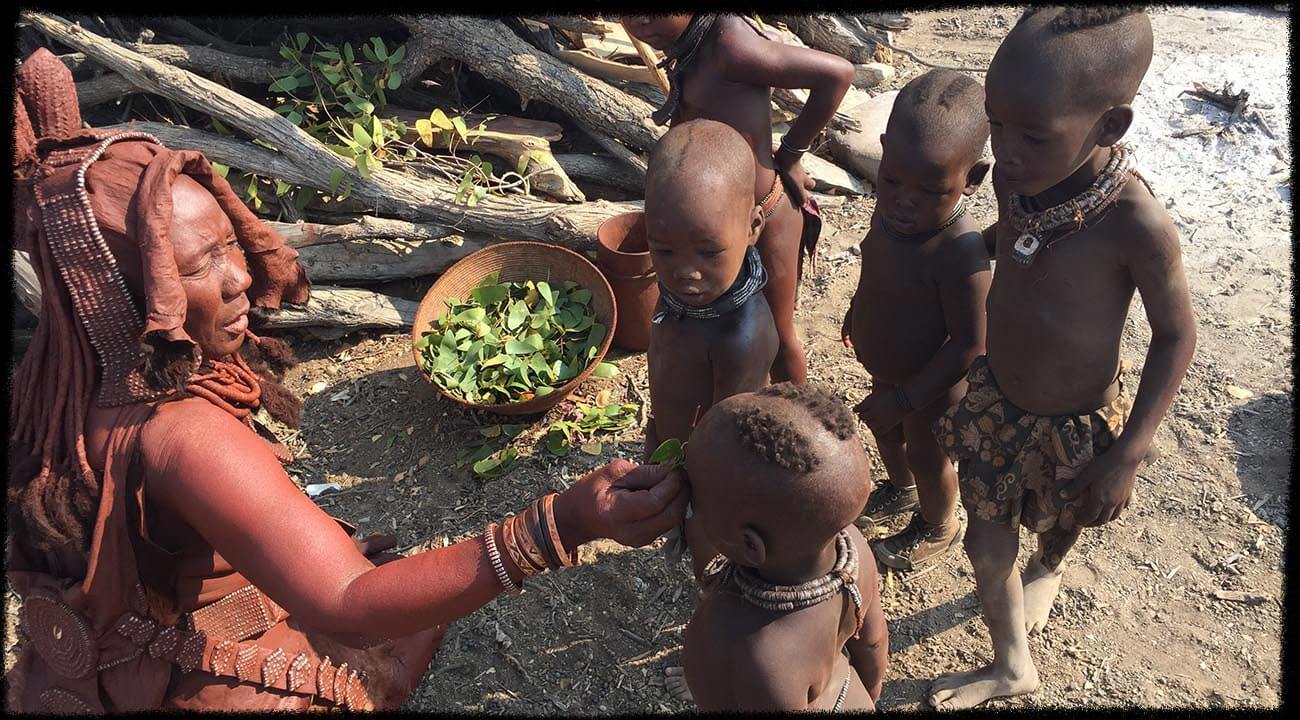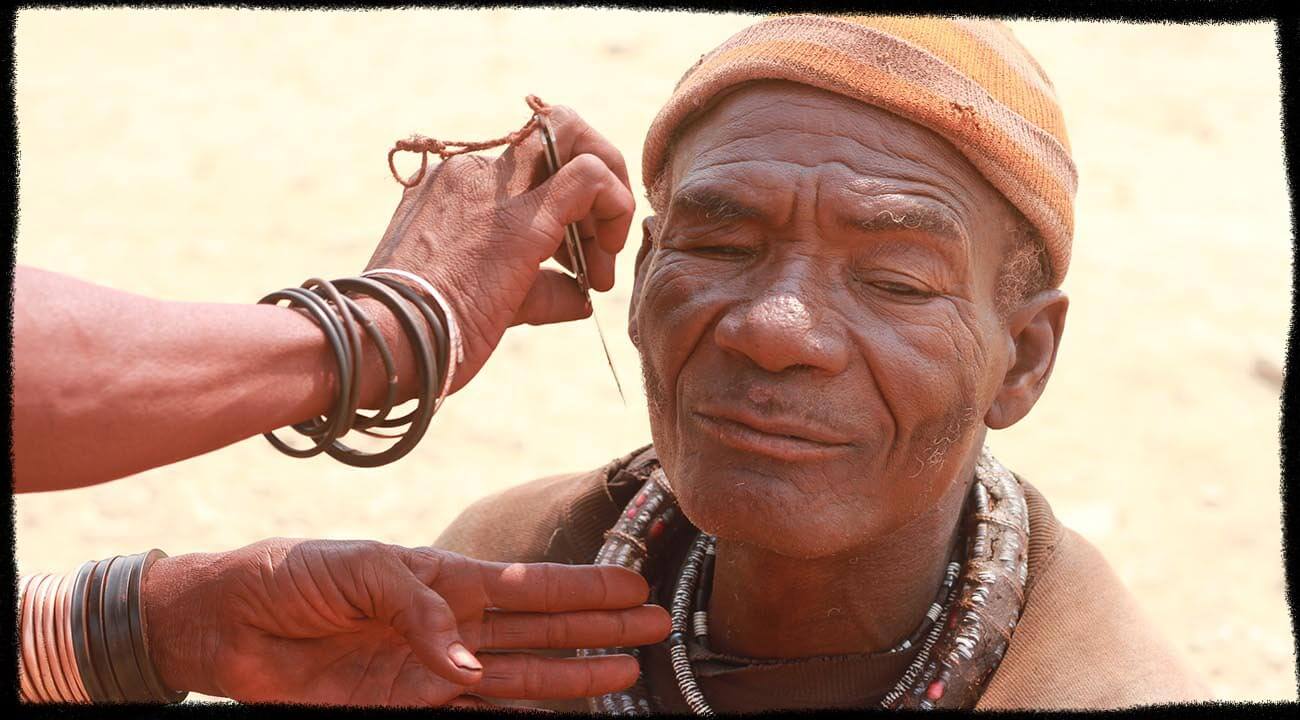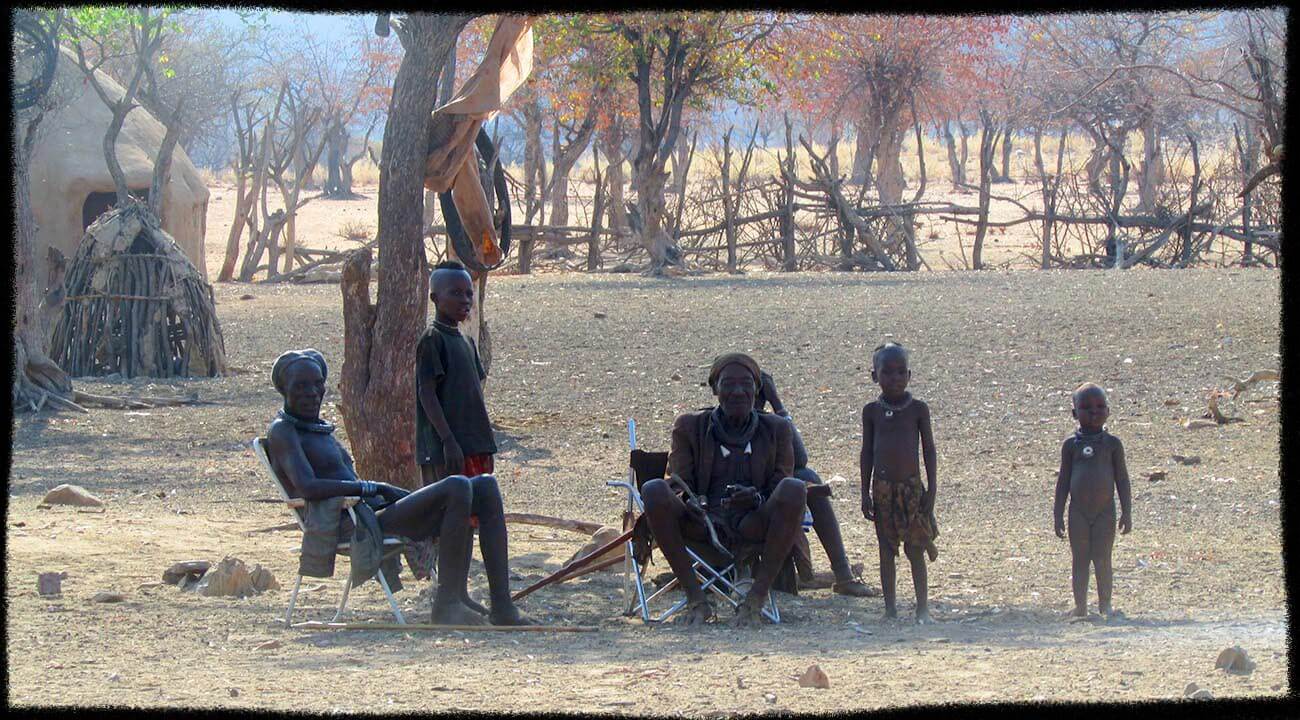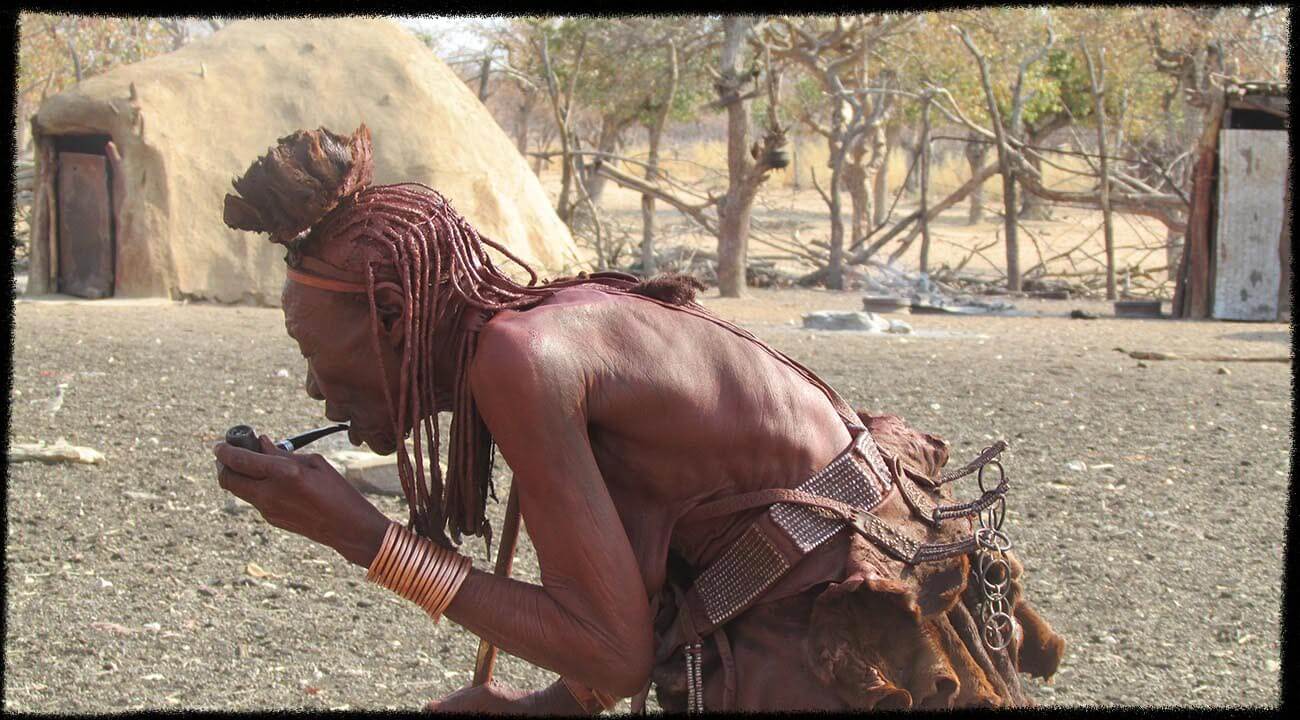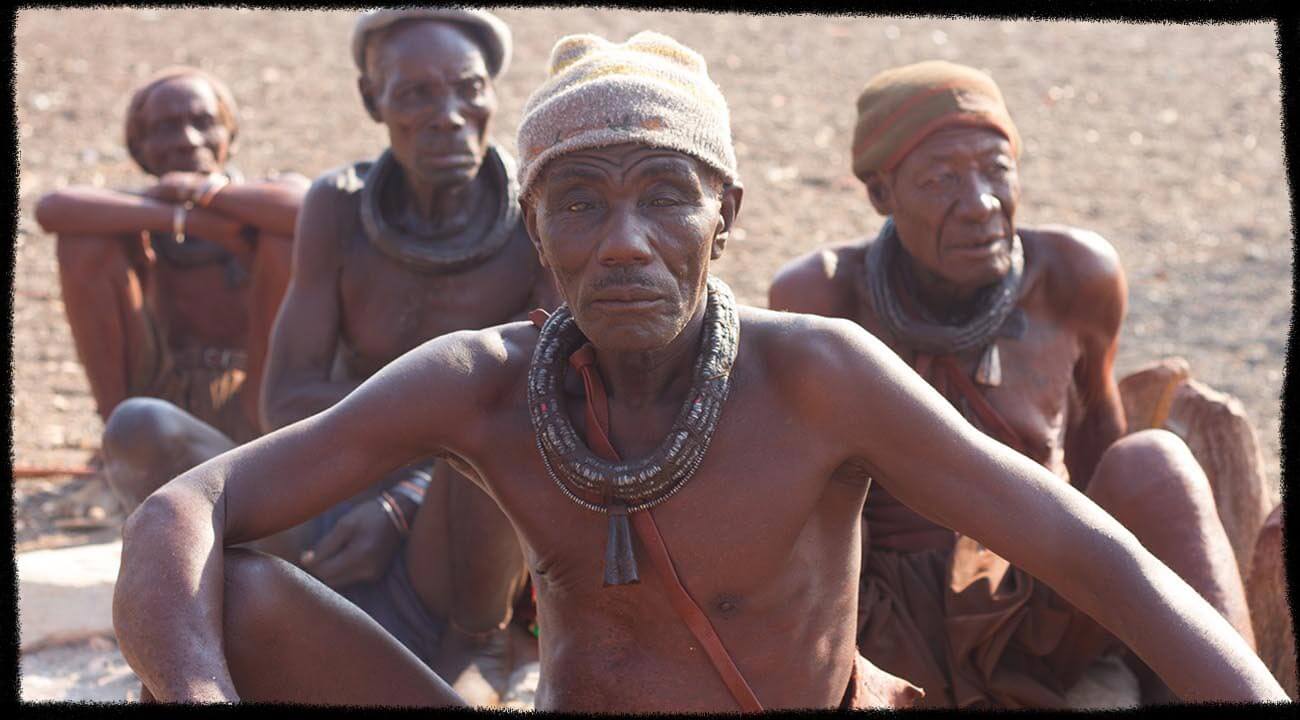Hembinda Family
About the family
We are a clan of warriors — Tall and Giant.
With its large herd of cattle, the Hembinda family is considered one of the richest among the Himba. They are distinctive in their height and build. Mbunguha Hembinda is the elder of the village and he has lots of stories to tell about the family’s history.
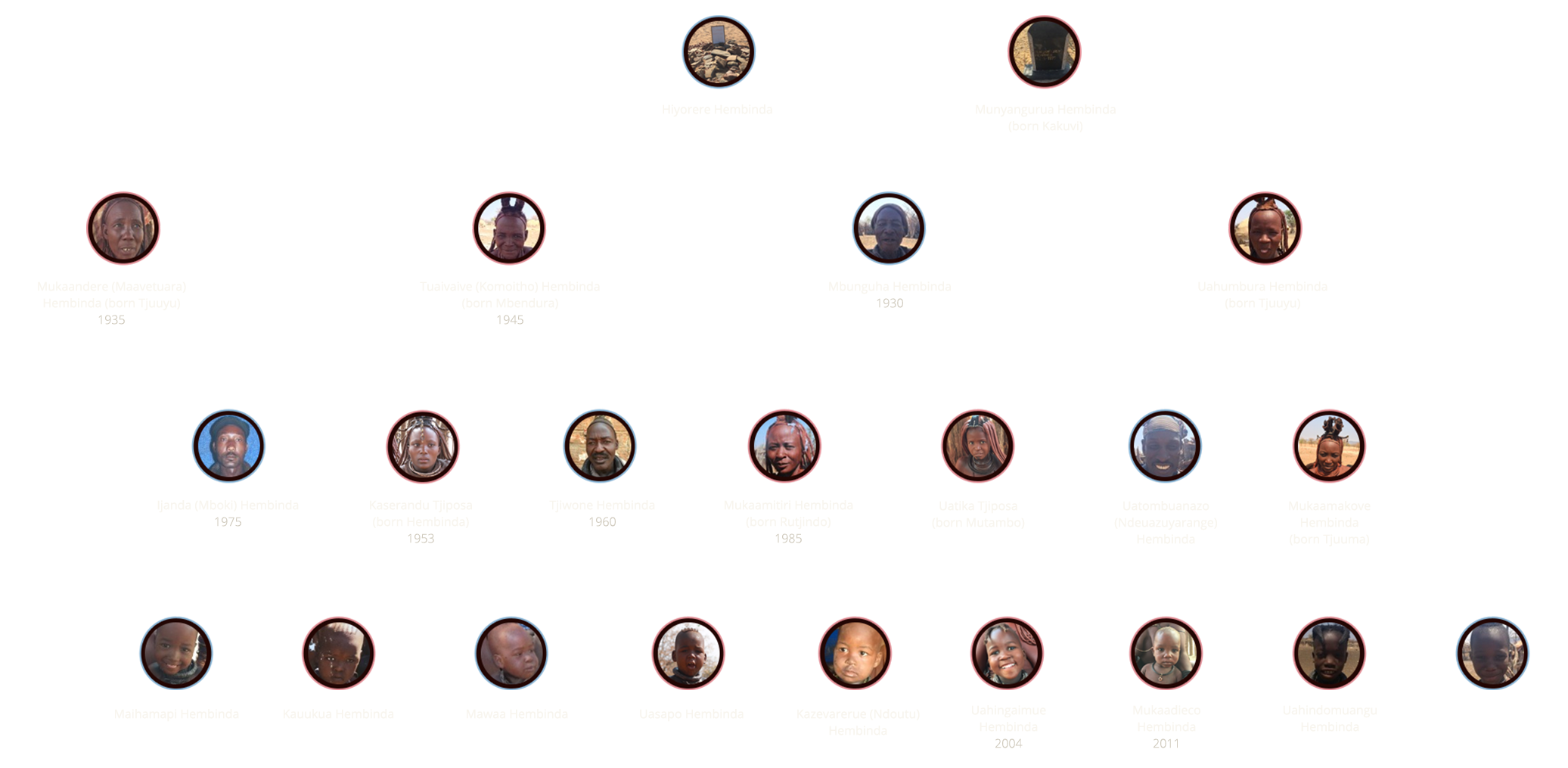
What's in a name
You can’t mention your own father’s name. You just say: My father.
To the Himba, the names of ancestors are sacred. As a show of respect, Himba children refrain from saying their father's name aloud.
Mbunguha Kavemuvaza
Mbunguha’s name is derived from the word okupunguha, which is the name of a ceremony that was taking place when he was born. His father gave him his second name, Kavemuvaza, which means “very far", because his grandfather’s grave was so far from the village.
Tjiuone Hembinda
Tjiuone’s name means “snoring”, because when he was a baby he was very fat and always snoring. His second name, Ueiyangisa, means “promise”. His grandfather had promised to slaughter his cow at his father’s wedding, then chose a relative’s cow instead at the last minute.
Muzari Ngombe
Muzari Ngombe Hembinda is one of the oldest people in the village, older even than Mbunguha. Her name means “the place where the cows have grazed before”. Another woman in the village has the exact opposite name: “the place where the cows have never grazed before.”
Mbunguha’s first hunt
When the leopard came, we let the dogs attack it, then we killed it with a spear.
Mbunguha started hunting kudu, zebra and leopards with other children from the village when he was a boy. He recalls that once, after they killed a leopard, most of the children didn’t want to eat the meat because the animal looked too similar to a dog. Mbunguha’s father and grandfather hunted lions and elephants but by the time he was a grown man Namibia had banned the hunting of big animals.
A generation of drought
It used to be one year rain and three years no rain. In the year of the rain we do babies.
Mbunguha’s parents told him he was born during an intense drought, which marked a tough period for the family. He never experienced a drought again until the age of 20. Since then, he says, the drought has persisted. He worries about its effect on future generations.
The elder’s wives
I have 3 wives,because when you marry one, she will eventually stop having children.
Most Himba men take more than one wife. Mbunguha’s wives — Mukaandere, Uahumbura, and Tuaivaive — are responsible for collecting firewood and water, building huts, cooking, taking care of the family’s 11 children, and helping out with the grandchildren.

Prayers to the ancestors
According to Himba belief, people can communicate with their ancestors and ask them for help and guidance through a special ritual called Okupunguha.
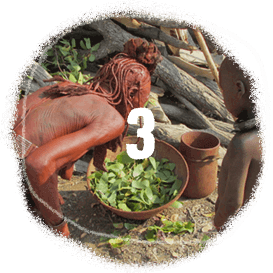
The women (dressed in
ceremonial outfits) and other family members approach the holy
fire on all fours and also chew and spit the leaves.
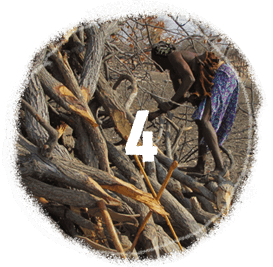
A number of men go cut a branch from a tree outside of the village.
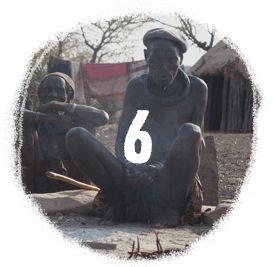
The skull is hung up in a
prominent place in the village, while the rest of the meat
is cooked in a pot for several hours to be shared among the men.
Life in Otjeme
Hembinda family members
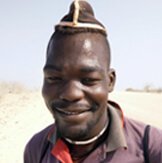 Kaindjokorua Hembinda
Kaindjokorua Hembinda
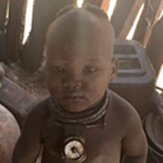 Kaizupo Hembinda
Kaizupo Hembinda
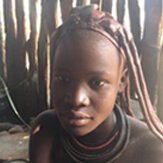 Muzari Ngombe
Muzari Ngombe
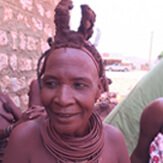 Kaserandu Tjiposa
Kaserandu Tjiposa
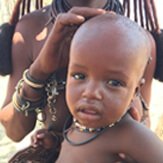 Kazenhoro Harire
Kazenhoro Harire
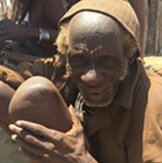 Katuvetumbu Tjiingee
Katuvetumbu Tjiingee
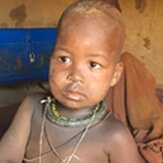 Kazevarerue (Ndoutu) Hembinda
Kazevarerue (Ndoutu) Hembinda
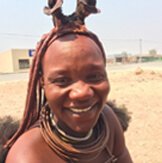 Kaunandjahe Tjipuiko
Kaunandjahe Tjipuiko
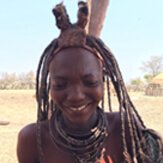 Uaroora Hembinda
Uaroora Hembinda
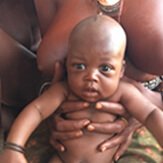 Kueyaye Ndiaombe
Kueyaye Ndiaombe
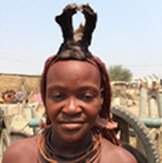 Uahumbura Hembinda
Uahumbura Hembinda
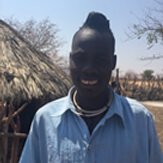 Kauvakerua Hembinda
Kauvakerua Hembinda
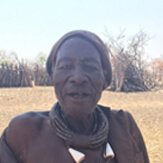 Mbunguha Hembinda
Mbunguha Hembinda
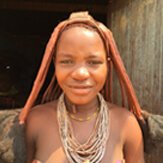 Kenaa Tjiposa
Kenaa Tjiposa
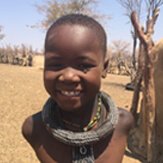 Kuzovandu Hembinda
Kuzovandu Hembinda
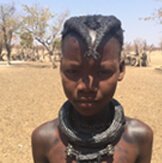 Mukaakaretu Hembinda
Mukaakaretu Hembinda
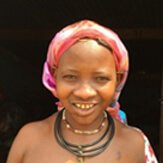 Razungana Tjirandi
Razungana Tjirandi
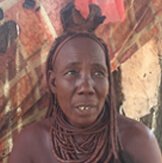 Mukaandere Tjirandi
Mukaandere Tjirandi
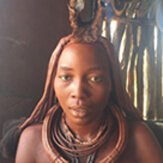 Mukaomberja Hembinda
Mukaomberja Hembinda
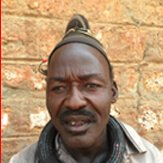 Tjiwone Hembinda
Tjiwone Hembinda
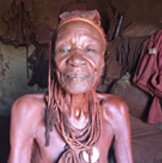 Kaserandu Kapimbua
Kaserandu Kapimbua
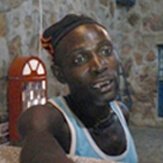 Kuzovandu Hembinda
Kuzovandu Hembinda
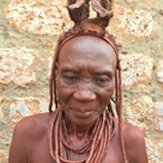 Uambundje Tjirambi
Uambundje Tjirambi
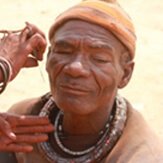 Tjihipo Tjipuiko
Tjihipo Tjipuiko
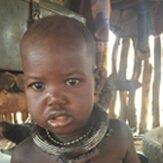 Tjaihemuni Hembinda
Tjaihemuni Hembinda
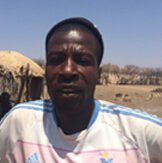 Tjikoneka Hembinda
Tjikoneka Hembinda
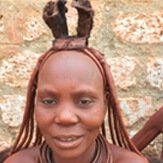 Mukakauvi Mutambo
Mukakauvi Mutambo
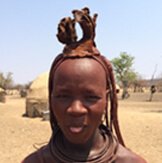
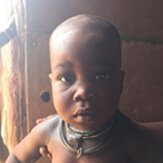 Kazepatere Hembinda
Kazepatere Hembinda
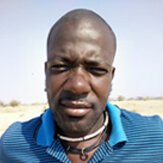 Utanauka Tjuuma
Utanauka Tjuuma
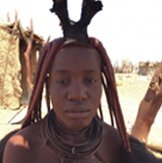 Vaisamuuo Harire
Vaisamuuo Harire
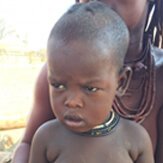 Ueraike Hembinda
Ueraike Hembinda
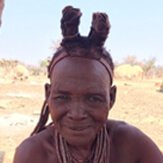 Tuaivaive (Komoitho) Hembinda
Tuaivaive (Komoitho) Hembinda
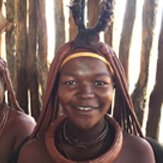 Uangorongombe Ndiaombe
Uangorongombe Ndiaombe
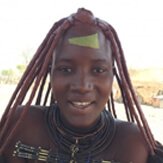 Uarambinda Hembinda
Uarambinda Hembinda
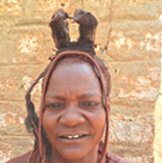 Uhongora Tjiposa
Uhongora Tjiposa
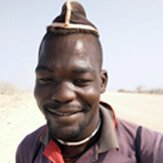 Uateurako Hembinda
Uateurako Hembinda
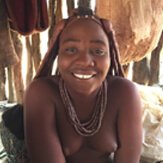 Uatika Tjiposa
Uatika Tjiposa
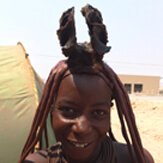 Yarinovandu Kapimbua
Yarinovandu Kapimbua
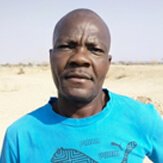 Veripeta Hembinda
Veripeta Hembinda

